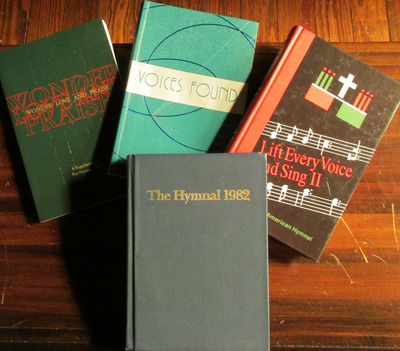It’s looking likely that when we do regather in public worship, one way we will moderate the spread of Covid-19 is by not singing. How long that lasts will depend on how long the virus has abated.
Dr. Healther Nelson is a vocologist and a voice teacher with a PhD in Vocal Pedagogy and Voice Science. And a music director at a mid-sized Baptist church in Missouri. She writes:
The more I read, the more I came to realize that whether I encouraged my congregation to engage in public singing when we met together again would be the most important decision I have made in ministry so far.
…
Because the droplets are larger, they can travel a few feet from the no-doubt penitent cougher or sneezer, and then they are grabbed by gravity and fall to the ground. If a person happens to be sick, and those droplets contain bacteria or viruses, they can infect another person if the droplets come into direct contact with that other person, or that person touches something the droplets land on and then they touch their mouth or eyes. Droplets are large enough they must be expelled from the body by force, with coughs or sneezes.
Aerosol particles are small enough that they can disperse from a person just from the normal act of breathing. Singing or loud speech tends to increase the aerosol cloud in size and in distance (sending aerosol from a person from 3 to 27 feet, varied by numerous factors). Also, because the aerosol particles are so small, they float in the air for much, much longer before gravity finally pulls them to the ground. And when I say much, much longer, I mean 12 hours or more in calm air. If the space where aerosol is present has an HVAC system or a draft that is moving air around, that aerosol can stay buoyant for an indeterminate amount of time.
…
Fifty years ago scientists looked at the spread of tuberculosis in an industrial school, where those who were in choir with an infected individual had a higher rate of catching the disease than those who interacted with the individual outside of singing events. Granted, this is a case study of a single individual in a single location, so it is not able to be verified through repeat measures like other types of studies. However, the study was rigorous and has been cited by other scientists numerous times, which attests to its reliability as a good study overall.
…
There is also a tragic story of a choir who held a rehearsal in early March and later experienced an outbreak among members, and others who contracted the disease after a choir rehearsal.
We don’t know, honestly, if it was the singing that created an environment for this disease to spread. We also don’t know that it didn’t….
The gist: For now, it is not safe to sing together.
Also, Germany to set out rules for religious services including singing ban.

